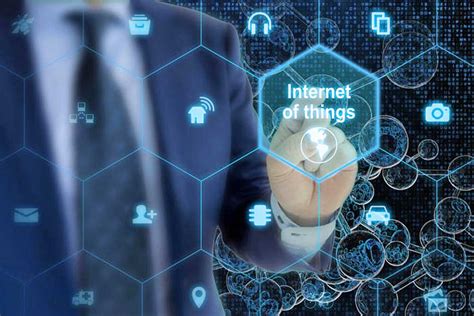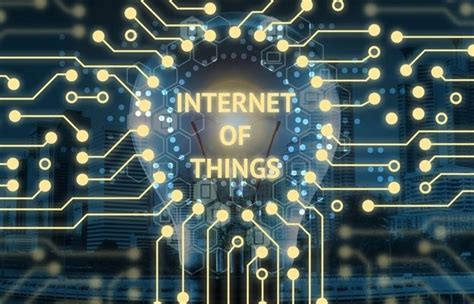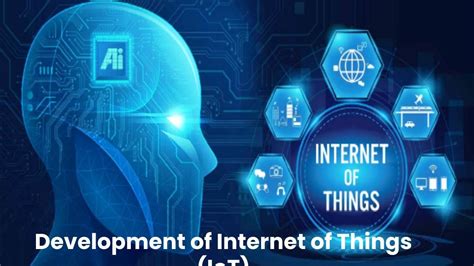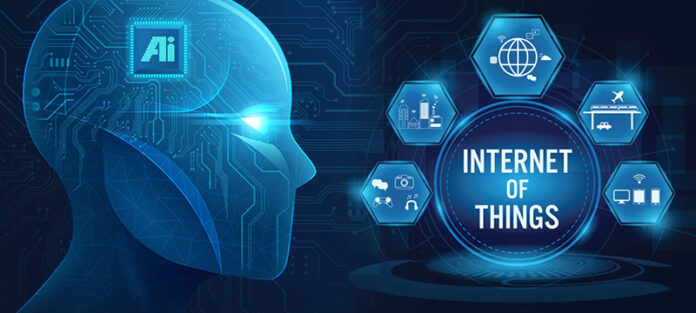Artificial Intelligence (AI) is rapidly transforming the Internet of Things (IoT), creating smarter, more autonomous systems that are revolutionizing industries and daily life. By integrating AI with IoT, devices are no longer limited to simple data collection but can now analyze, learn, and make decisions in real-time. This synergy allows for enhanced automation, predictive maintenance, and personalized experiences across various sectors such as healthcare, manufacturing, and smart homes. As AI-driven IoT devices continue to evolve, they are unlocking new possibilities in technology, offering innovative solutions to complex problems. In this article, we’ll explore the role of AI in IoT, its applications, challenges, future trends, and the profound impact on society.
Investigate this topic thoroughly with inxos.xyz
1. Introduction to AI in IoT: Brief overview of how AI integrates with IoT devices and systems.
Artificial Intelligence (AI) and the Internet of Things (IoT) are two advanced technologies that, when combined, unlock significant potential in connected devices. IoT, built on networks of intelligent devices that collect and transmit data, gains the ability to analyze, learn from, and respond to this data in real time through AI integration. This union allows IoT systems to transcend passive data collection, becoming more dynamic, adaptable, and efficient. For example, AI can assist IoT devices in predicting failures before they occur, optimizing energy consumption, or personalizing user experiences based on individual behavior. The seamless convergence of AI and IoT fuels innovation across industries, enabling smarter automation, improved decision-making, and more intelligent ecosystems.

2. Applications and Examples: Real-world applications of AI in IoT across various sectors.
The convergence of AI and IoT has spurred remarkable progress in numerous industries, optimizing efficiency and refining decision-making. In healthcare, AI-enabled IoT devices continuously track patient vital signs, notifying medical professionals of significant changes and facilitating proactive care. Smart home technologies leverage AI to understand user preferences, automating lighting, temperature, and security systems for a more personalized living environment.
In the manufacturing sector, AI-powered IoT solutions enable predictive maintenance by analyzing machine performance data. This analysis minimizes downtime and reduces costs. Meanwhile, retailers are utilizing AI to optimize inventory management by employing smart shelves that monitor stock levels and customer preferences, thereby streamlining their supply chains.
The transportation sector is undergoing a dramatic shift, powered by AI-enhanced IoT applications. These applications drive smart traffic management systems, which analyze real-time data to alleviate congestion and enhance safety. Simultaneously, agriculture is reaping the benefits of AI-powered IoT sensors that monitor soil conditions and crop health, facilitating precision farming and sustainable practices. These examples highlight the immense potential of AI within IoT, revolutionizing industries and ushering in a new era of smarter, more efficient systems.

3. Challenges and Considerations: Ethical, security, and operational challenges posed by AI in IoT.
The integration of AI into the Internet of Things (IoT) offers substantial benefits, but it also presents significant challenges that require careful consideration. A key concern is data security. IoT devices frequently gather sensitive personal information, making them vulnerable to cyberattacks if not adequately protected. Hackers can exploit weaknesses in these devices to gain access to private data or disrupt critical systems, potentially leading to serious consequences in sectors such as healthcare and transportation.
Ethical considerations are paramount when incorporating AI into IoT. The deployment of AI for surveillance or monitoring purposes raises concerns about privacy and consent, especially in smart homes and public spaces. It is crucial to ensure that AI systems are developed with ethical guidelines at their core, preventing misuse and fostering public trust.
Furthermore, implementing AI-driven IoT solutions presents substantial operational hurdles. The integration of various systems, guaranteeing their seamless interaction, and handling the massive data generated necessitate robust infrastructure and skilled personnel. Additionally, organizations must weigh the consequences of AI-powered decision-making, as relying on automated systems can erode accountability and transparency.
Successfully and responsibly implementing AI in the Internet of Things hinges on addressing these challenges. Doing so will contribute to a safer and more ethical technological landscape.

4. Future Trends: Predictions for the future of AI in shaping IoT technologies and industries.
The future of AI in shaping IoT technologies is set for significant growth and transformation, driven by several key trends. AI algorithms are rapidly advancing, leading to enhanced automation and greater autonomy for IoT devices. This will result in more intelligent systems capable of making real-time decisions, decreasing the need for human intervention in a wide range of applications, from smart homes to industrial automation.
Device interoperability is poised for significant advancement, fueled by the creation of standardized protocols and frameworks. As more manufacturers embrace these standards, smooth communication between a wide range of IoT devices will be facilitated. This will result in enhanced user experiences and increased operational efficiency across all sectors.
Furthermore, the emergence of edge computing will enhance AI in IoT by handling data processing nearer to its origin. This will minimize latency, accelerate response times, and lower bandwidth consumption, resulting in more rapid and effective data analysis.
Sustainability is becoming a crucial factor in future advancements, driven by a growing emphasis on environmentally responsible practices. Leveraging AI-powered IoT solutions can significantly contribute to achieving these goals. These technologies offer the potential to optimize energy use, minimize waste generation, and enhance resource management, ultimately contributing to a more sustainable future.
The ethical and governance frameworks governing AI are evolving, paving the way for its responsible integration into the Internet of Things (IoT). These frameworks will prioritize privacy and security, building public trust and ensuring that innovations are ethically sound. This convergence of AI and IoT promises a future where technology operates more intelligently, efficiently, and responsibly.
5. Impact on Society: Discussion on how AI-driven IoT innovations are reshaping daily life and industries.
AI-driven IoT innovations are significantly reshaping daily life and various industries, creating a more connected and efficient world. In everyday life, smart home devices equipped with AI enhance convenience and security. For instance, smart thermostats learn user preferences and optimize energy use, while AI-powered security cameras provide real-time alerts, allowing homeowners to monitor their properties remotely. This integration not only streamlines daily routines but also promotes energy efficiency and cost savings.
In the healthcare sector, AI-enabled IoT devices improve patient care through continuous monitoring and personalized treatment plans. Wearable health monitors can track vital signs and send alerts to healthcare providers, enabling timely interventions and reducing hospital visits. This technology fosters a proactive approach to health management, ultimately improving patient outcomes.
Across industries, transformative changes are underway. In manufacturing, AI-powered Internet of Things (IoT) solutions enable predictive maintenance, reducing downtime and boosting productivity. Retailers are utilizing AI to optimize inventory management and personalize customer experiences, leading to increased satisfaction.
Moreover, transportation systems are becoming smarter, with AI-enhanced IoT applications improving traffic flow and enhancing safety. Overall, the fusion of AI and IoT is revolutionizing society by creating smarter environments, improving efficiency across sectors, and fostering innovative solutions that address complex challenges. As these technologies continue to evolve, their impact on daily life and industries will only grow.
In conclusion, the integration of Artificial Intelligence with the Internet of Things is driving a technological revolution that transforms various aspects of daily life and industries. From enhancing smart home devices to improving healthcare outcomes and optimizing manufacturing processes, AI-driven IoT solutions offer unprecedented opportunities for efficiency and innovation. However, it is crucial to address the ethical and security challenges posed by these advancements. As technology continues to evolve, a responsible approach will ensure a beneficial impact on society.
inxos.xyz
